
Intellicast S6E7– Connecting Marketing with the Frontline with Chris Wallace of InnerView
March 14, 2023
Intellicast S6E8 — A 2023 SampleCon Recap with Brad Franz and Mary Draper
March 28, 2023Since our fourth-grade social studies classes (and even before then), we have heard the terms Capitalism, Socialism, and Communism. As adults, these systems may have taken on new connotations for us due to their use in modern media and by different political affiliations. In our latest round of research-on-research, we asked respondents if a society built on each of these systems is inherently good.
Overall, people are the most likely to believe a society built on Capitalism is inherently good and the least likely to believe that Communism is inherently good.
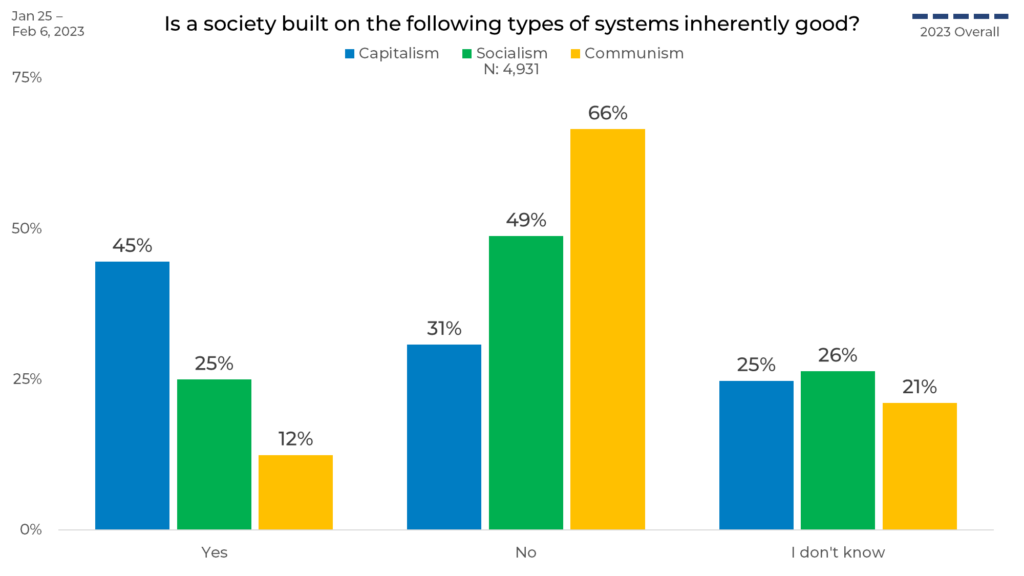
Gender
When analyzing response by gender, we see that males are more likely than females to believe a society built on Capitalism, Socialism, or Communism is inherently good at 19%, 8%, and 7% more respectively. Females are more likely than males to say they don’t know or don’t have an opinion.
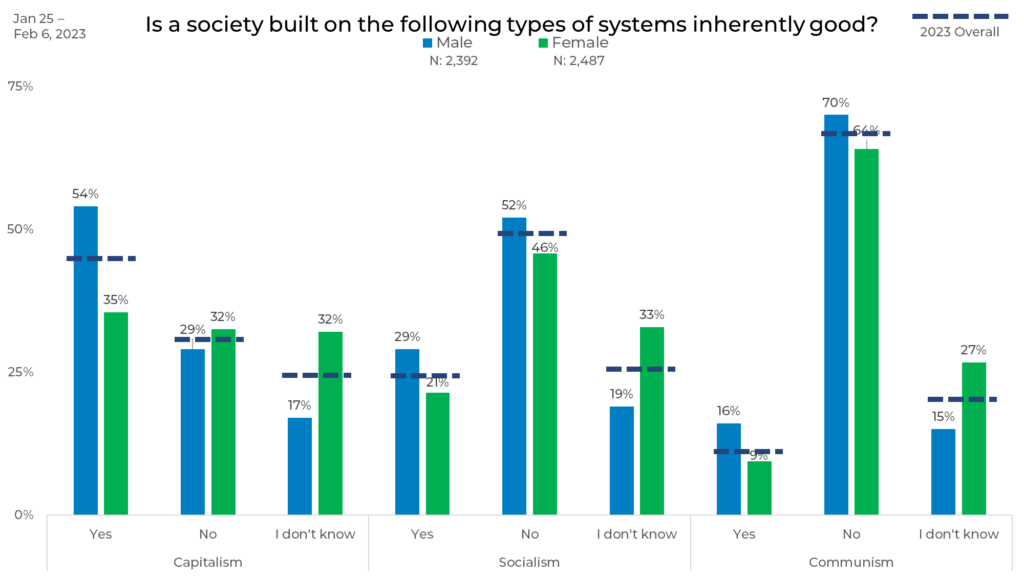
Political Affiliation
We also looked at response by political affiliation. Republicans are the most likely to believe a society built on Capitalism is inherently good (16% more likely than Democrats.) Democrats are the most likely to believe that a society built on Socialism or Communism is inherently good. They are 25% more likely than Republicans to think that Socialism is good and 9% more likely than Republicans to think Communism is good. Those who identify with political parties other than Democrat or Republican are most likely to say they don’t know or don’t have an opinion.
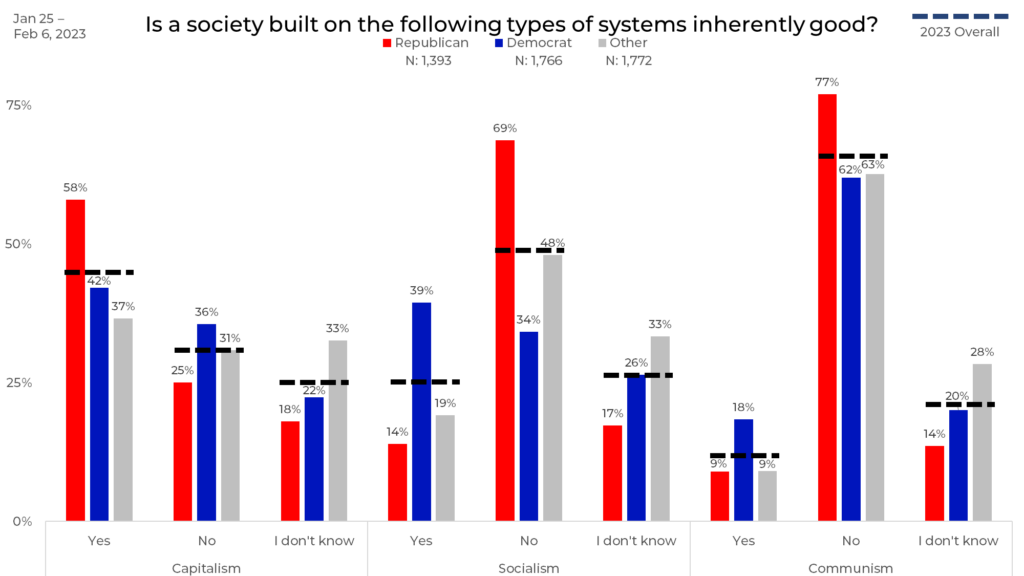
Age
When it comes to age, we see that the older a person is, the more likely they are to believe Capitalism is good and the less likely they are to think that Socialism and Communism are good. In fact, people over the age of 55 are the most likely to believe a society built on Capitalism is inherently good (14% more likely than 35-44-year-olds and 19% more likely than 18-34-year-olds). People between the ages of 18-34 are the most likely to believe a society built on Communism or Socialism are inherently good.
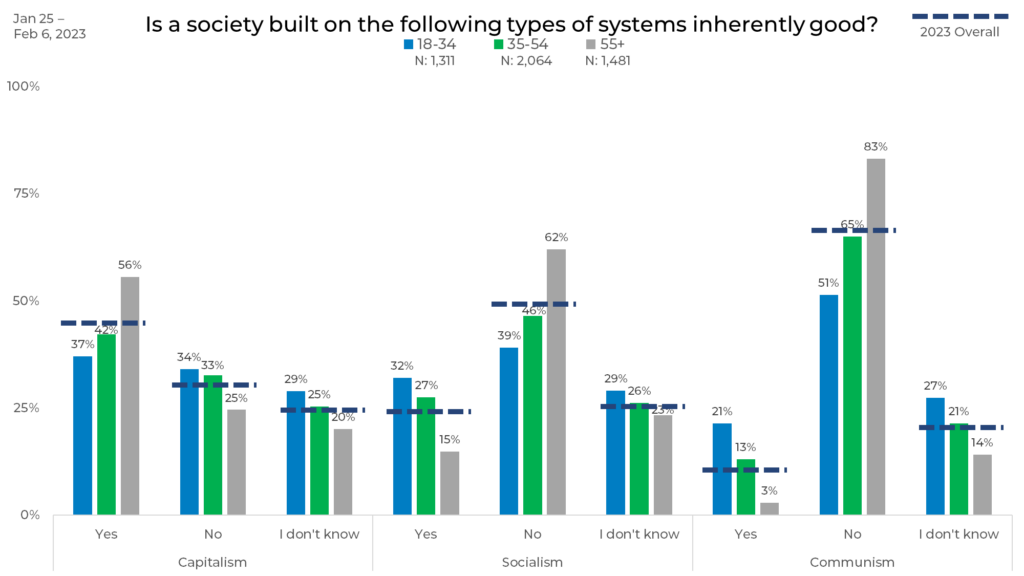
Ethnicity
When looking at response by ethnicity, we see that Caucasians are the most likely to believe a society built on Capitalism is inherently good and the least likely to believe Communism and Socialism are good. African Americans are the most likely to believe a society built on Socialism or Communism is inherently good. African Americans are also the most likely to say they don’t know or don’t have an opinion.
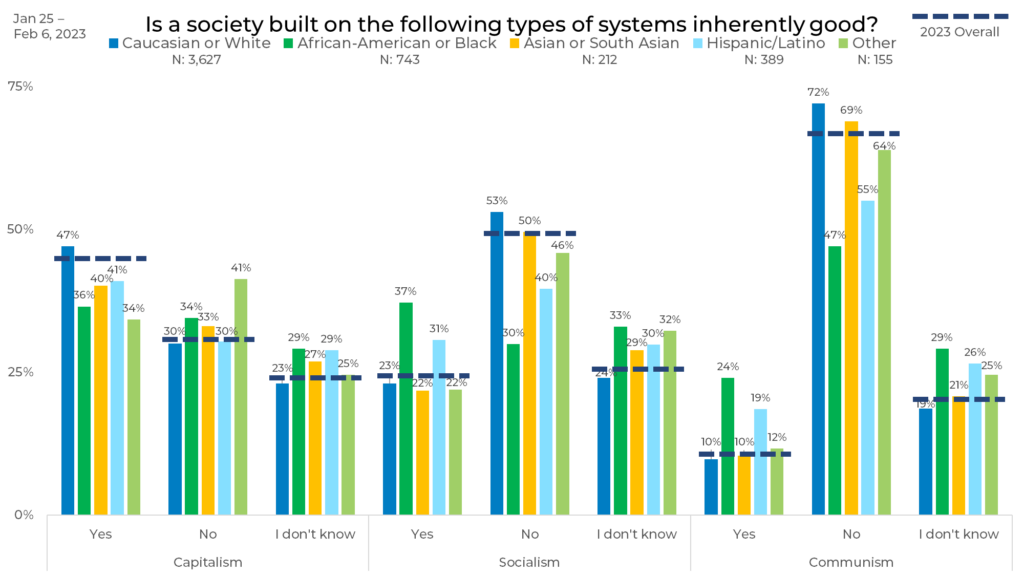
Panel
Finally, we looked at response by panel. Here we see that Panel R is the most likely to believe a society built on Capitalism is inherently good. Panel I is the most likely to believe a society built on Communism or Socialism is inherently good.
We also see differences between panels up to 26 percentage points as shown between Panels J and I in those who believe a society built on Communism is inherently good. We also see responses vary up to 15 points lower and 11 points higher than the overall average. These differences can be caused by variations in panel makeup, management, and more.
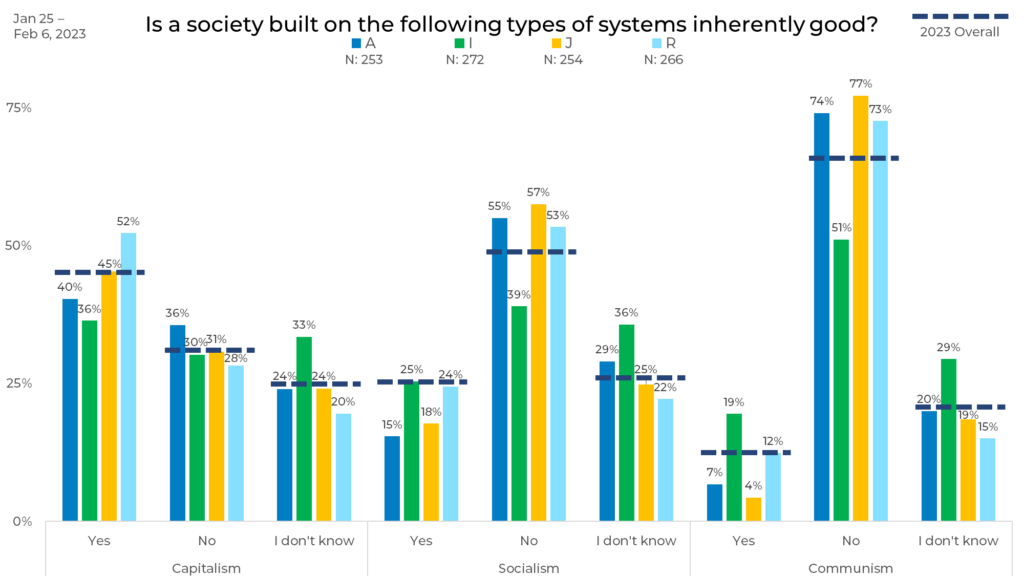
As we see in this blog, public opinion can vary greatly by both demographic and panel which can have a significant impact on your data. For instance, if you only used Panel I, you might think more people believe in societies based on Socialism or Communism than actually do. This is why strategic sample blending is the best practice to ensure any changes in your data are due to shifts in the market, not inconsistencies in your sample.




